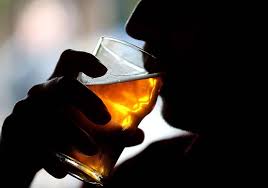Information on Cookies
To make the best use of our website, you'll need to make sure your web browser is set to accept cookies to ensure you receive the best experience.
For further information, please read our Cookies Policy.

Log In
Criminals who commit ‘alcohol-fuelled crime’ may be banned from drinking and made to wear ‘sobriety tags’ after new legislation comes into force on 19 May 2020.
Crime, Policing and Justice Minister Kit Malthouse MP said:
“Alcohol-fuelled crime blights communities and puts an unnecessary strain on our frontline services.
“Smart technologies like sobriety tags not only punish offenders but can help turn their lives around.
“While prison will always be the right place for many criminals, tough community sentences like this can help cut reoffending and protect the public.”
An estimated 39% of violent crime involves an offender under the influence of alcohol – with the social and economic cost of alcohol-related harm being £21.5 billion per year.
‘Sobriety tags’ works by fitting a tag around the ankle of an offender. This then samples their sweat every half-hour to determine whether alcohol has been consumed. They can distinguish between alcohol-based products, such as hand sanitiser, that could be used to mask alcohol consumption and can detect when contact between the skin and the tag has been blocked.
The roll out of the ‘Sobriety tags’ follows 2 successful pilots, one across Humberside, Lincolnshire and North Yorkshire, and another in London, which showed offenders were alcohol free on 97% of the days monitored. Wearers also reported a positive impact on their lives, wellbeing and behaviour.
Courts will be able to order offenders to wear a tag for up to 120 days. The tough community sentence not only punishes offenders but aids their rehabilitation by forcing them to address the causes of their behaviour – in turn helping to reduce alcohol-related harm.

